UNDP's SMILE Application Helps Health Workers Accelerate Vaccine Distribution in Ambon
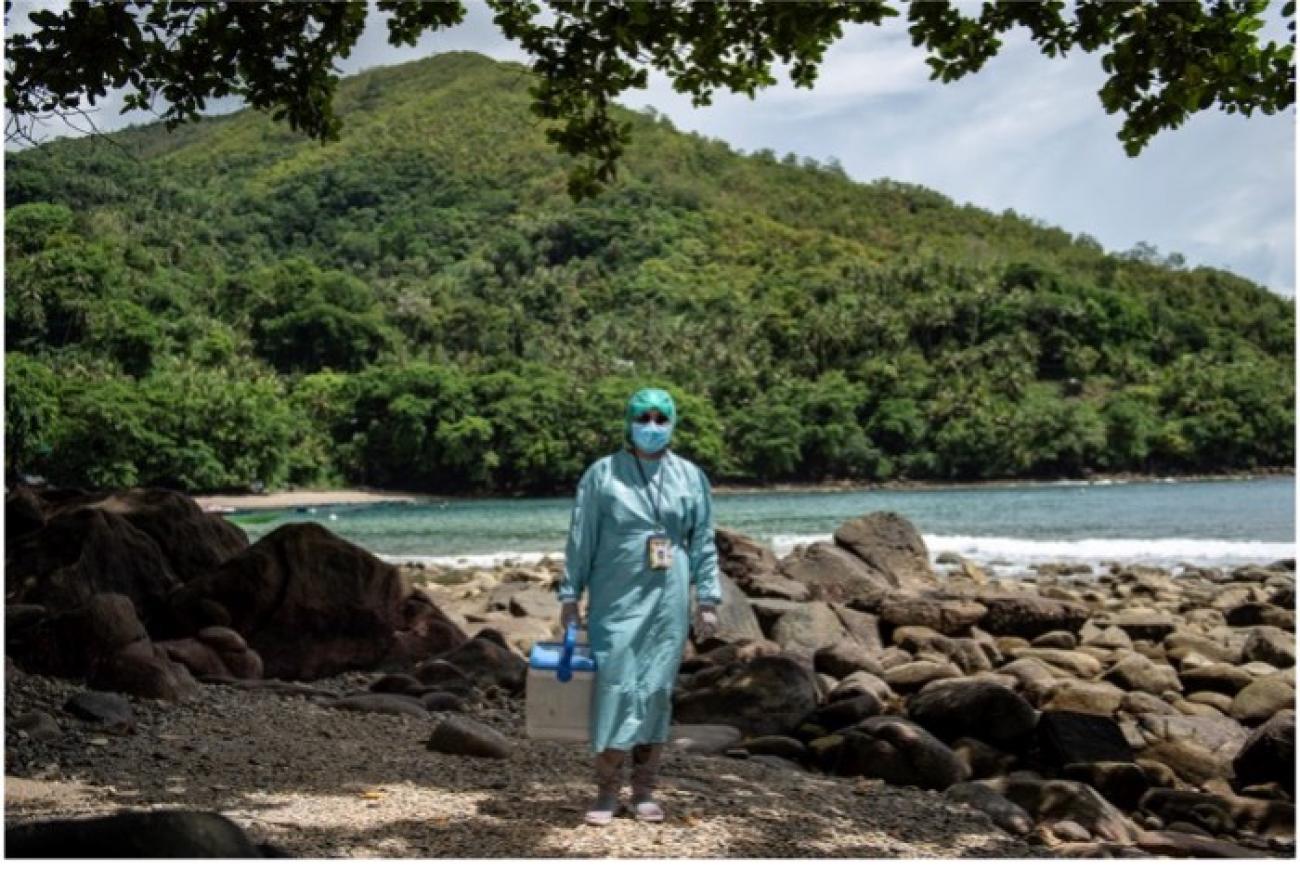
UNDP's vaccine monitoring application helps health workers in Indonesia's remote areas identify unvaccinated populations and access real-time vaccination data.
Magdalena Pelamonia, or Maya, is an immunization coordinator at Kilang Community Health Center, for 15 years. Maya’s daily work includes vaccinating children under 5 years of age, in five districts. During the pandemic, she was assigned to oversee the COVID-19 vaccination drive.
The health workers at Kilang face geographical challenges including winding roads, harsh terrain, and coastal areas. Walking is often the only option to reach targeted areas. Consequently, the distribution of vaccines takes longer.
“If we complain about walking, when can we reach our destination. One thing is for sure, people need immunization,” Magdalena Pelamonia, Health Worker
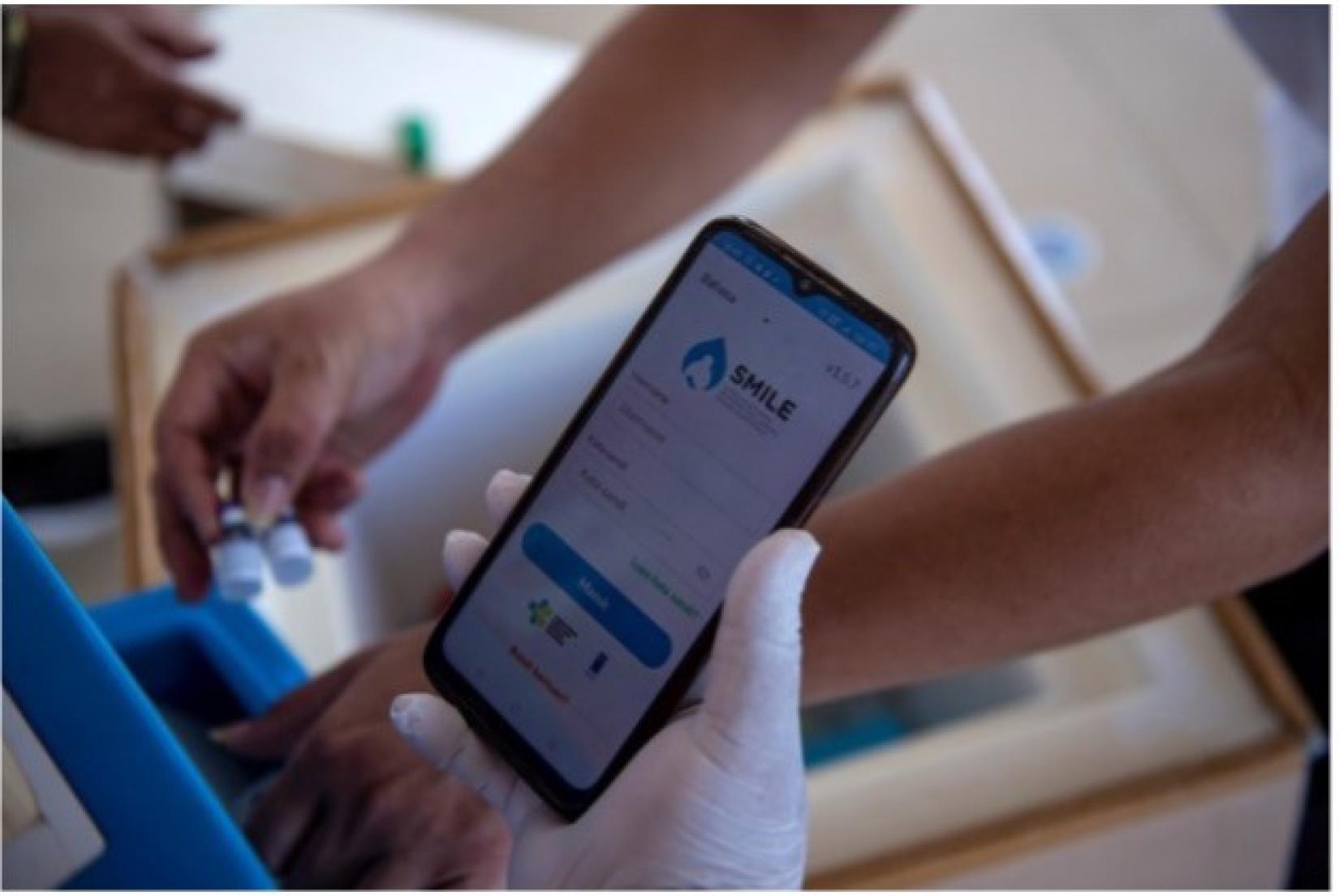
SMILE (Immunization and Logistics Electronic Monitoring System), developed by Indonesia’s Ministry of Health and UNDP, with support from the Government of Indonesia, is a technology-based application to monitor vaccine logistics, including distribution, and provides updated reports. Ambon city uses the app for regular immunizations and to support the distribution of the COVID-19 vaccine. The government has urged health workers to use the system for mass vaccination drives.

Vaccination logbooks are used in areas without internet connections. Two-month-old Kenzo de Fretes was the first name in health worker Maya’s logbook today. The child received Polio 2 and DPT HB HIP 1 vaccines. Once Maya returns to the city, she will transfer the data to the SMILE application.
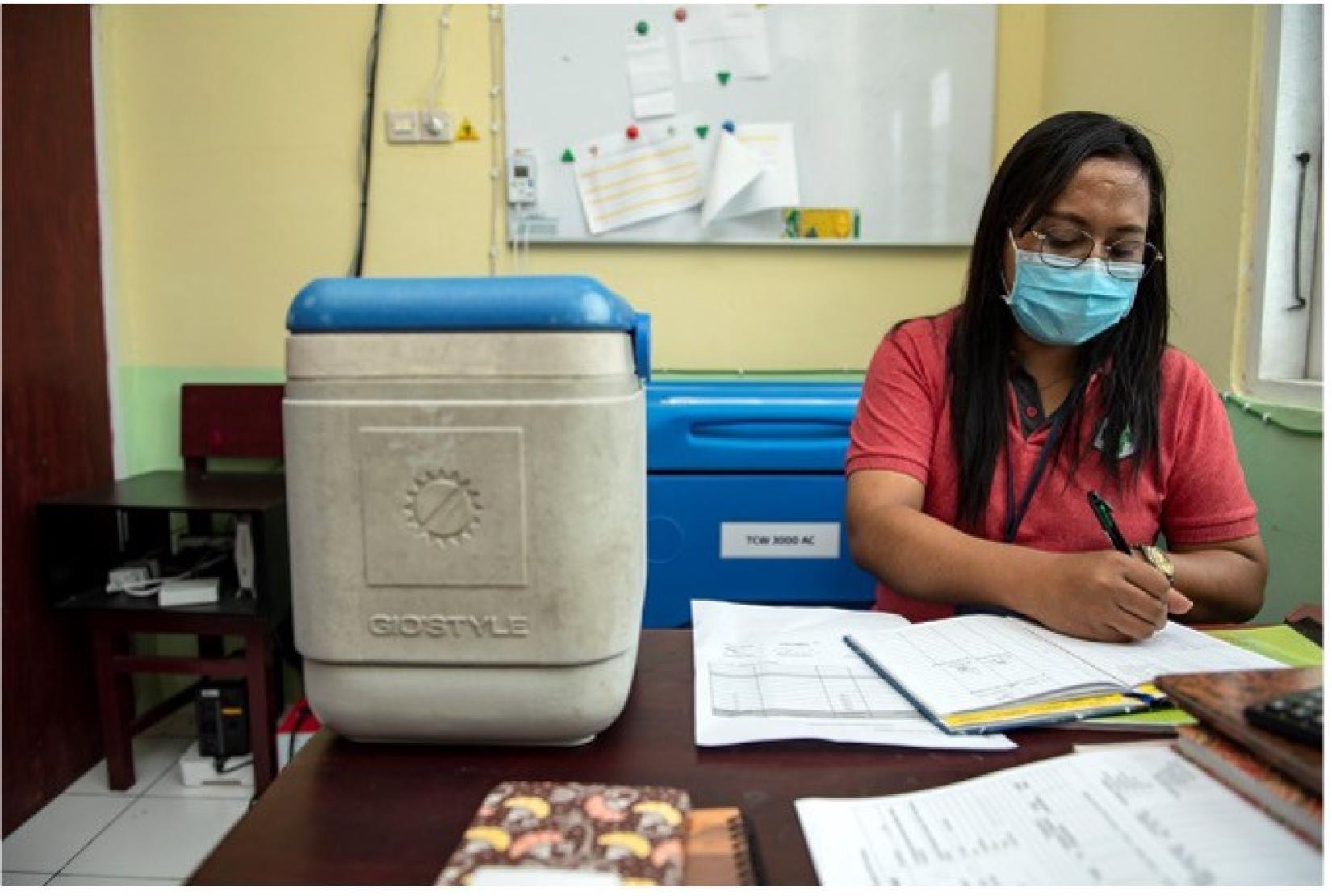
The last step in the vaccination process is updating the data on the app — for both regular vaccinations and the COVID-19 vaccine. This data is important for the health sector to monitor the number of vaccines used by community health centers in an area.
SMILE makes it easier to identify unvaccinated populations, to monitor vaccine distribution and to evaluate SMILE and vaccine use in the city of Ambon.
“SMILE is a one-stop application that really helps with my work, because vaccine distribution can be seen in real-time, making it easier to trace,” Magdalena Palomina, Health Worker.
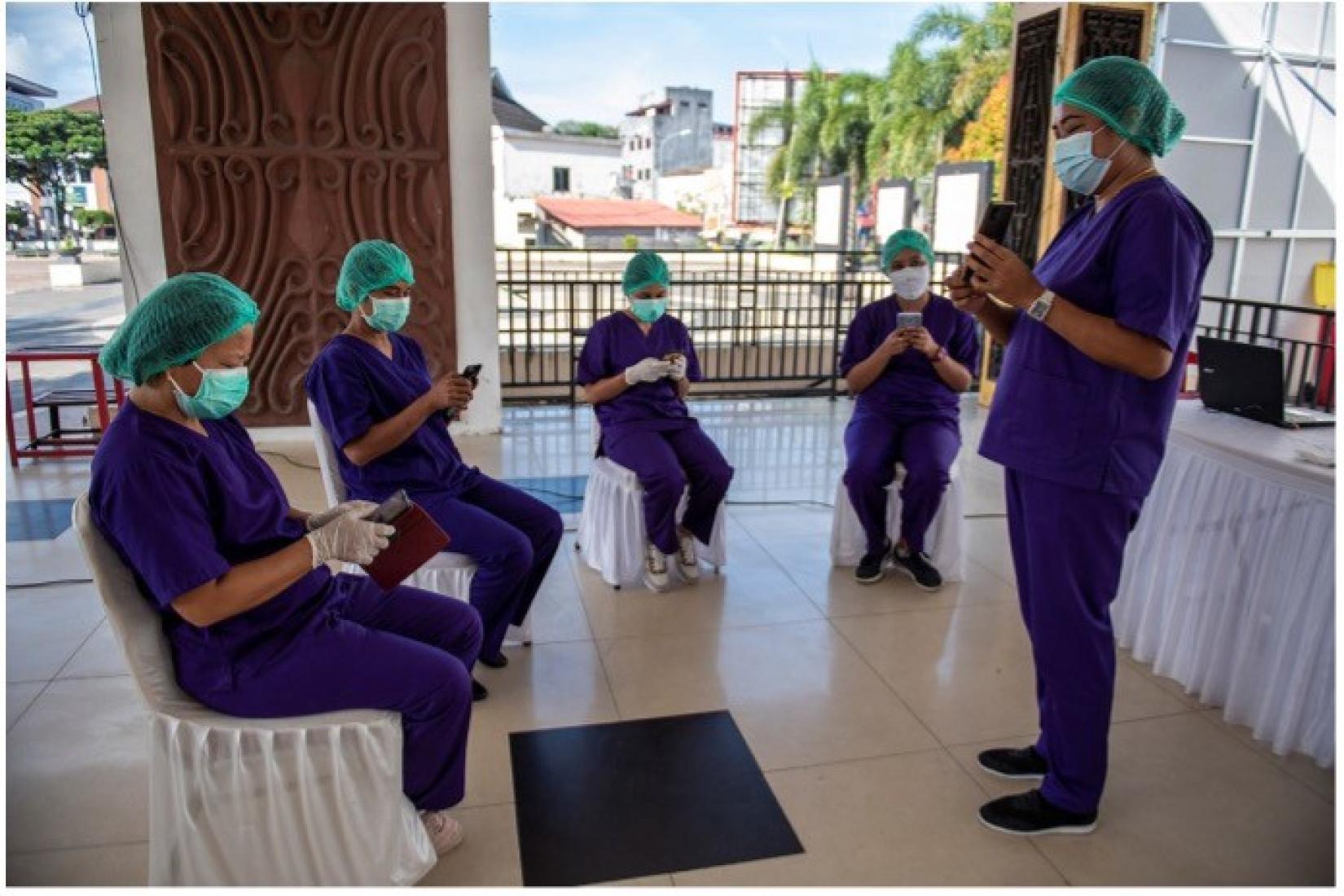
SMILE is a nationwide integrated application to monitor vaccine distribution in almost all of community health centers and hospitals in Indonesia. A total of 12,000 health centers in 34 provinces has used the application. SMILE is not only operated by pharmacists and immunization staff now, but also by other health workers.
In the future, all health workers are expected to access the application to work more effectively and efficiently. This system can avoid the delay in vaccine data input when it only depends on one worker.
“It will be great when all health workers can access SMILE. It will help a lot, and we can be more efficient because we no longer rely on one or two workers,” said Jones Angkotamony — Head of Kilang Community Health Center.
Empowering Health Workers
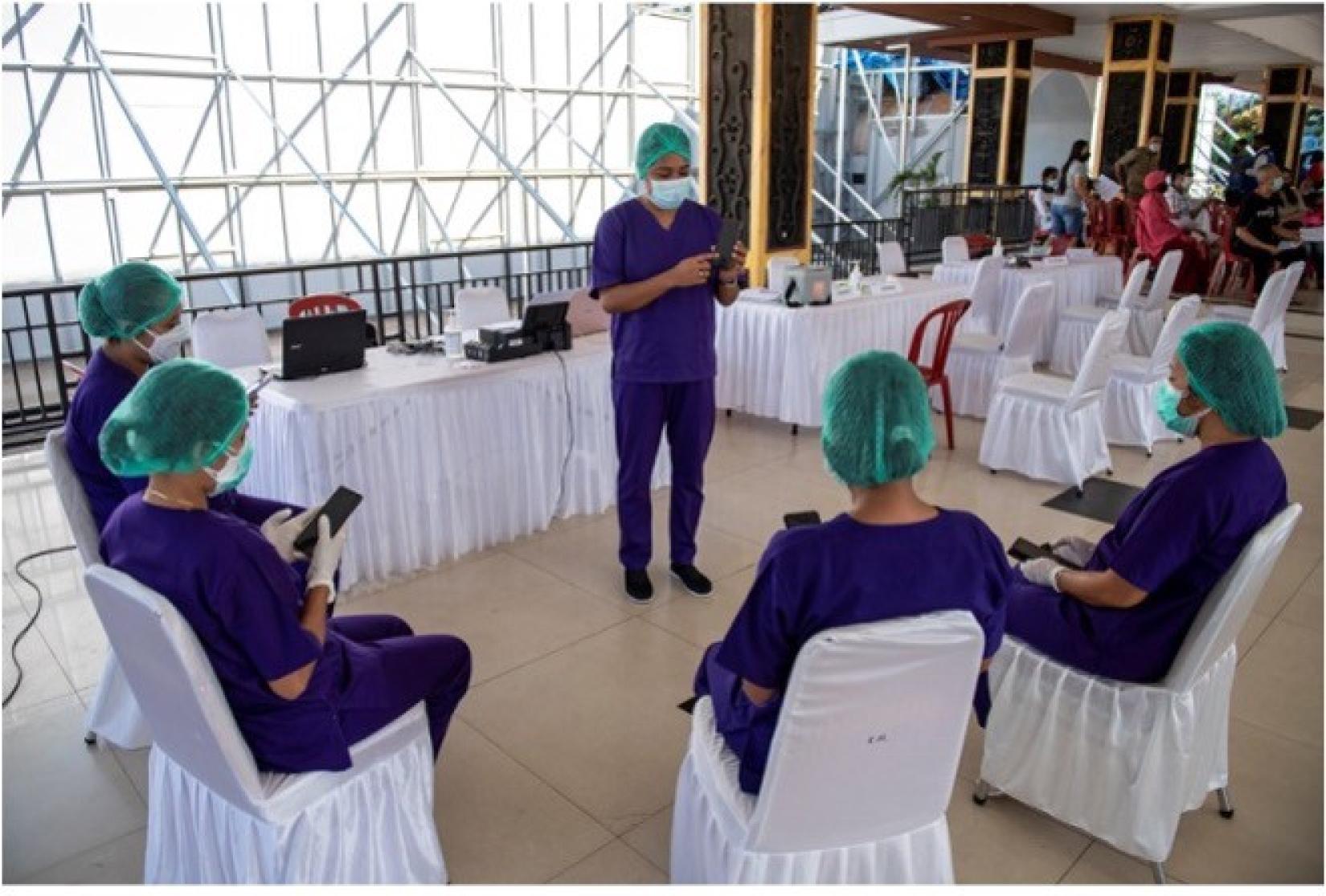
Dr. Lira, head of the Amahusu Community Health Center, leads an all-women vaccinator team at Merdeka Field. Dr. Lira was making final preparations, including checking the SMILE application, and making sure that every health worker could use the app. With funding from the Government of Japan, the application helps increase efficiency of vaccine logistics.
“We would be overwhelmed for sure without SMILE. This application helps a great deal, especially when you’d like to know the number of available vaccines at local or national levels,” said Dr. Lira.
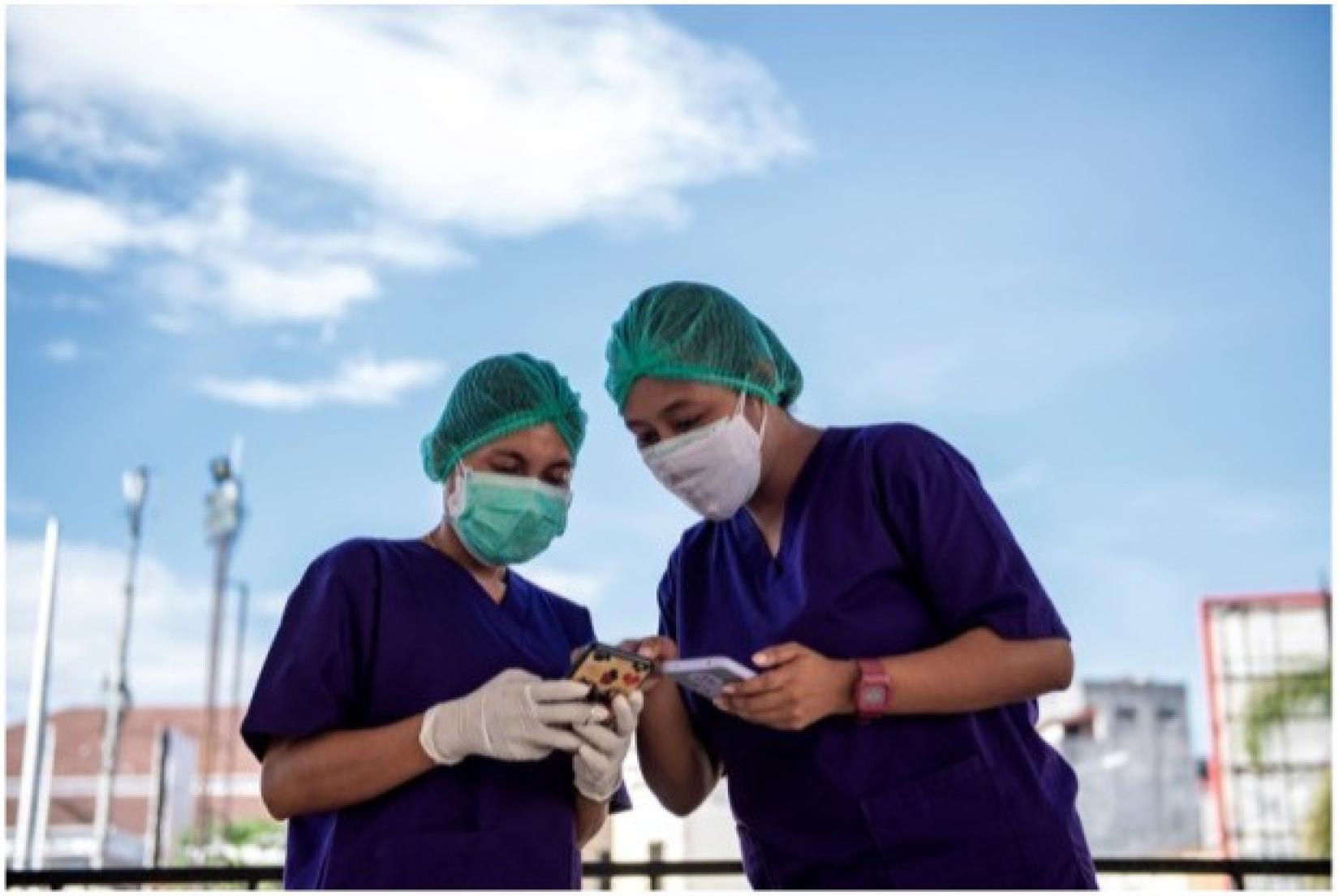
During the height of the COVID-19 pandemic, the government provided online training for over 10,000 health workers across the country. Health workers were expected to check the logistics of the COVID-19 vaccine through SMILE app in real-time. The SMILE application, developed by Indonesia’s Ministry of Health and UNDP, with support from the Government of Japan, has also been used to keep track of vaccine distribution during the pandemic.
SMILE makes it easier to monitor logistics, with information provided in maps and other indicators. It provides information on vaccine availability for up to 14 days instantly, and also updates users on vaccine distribution and usage.
“Imagine if all health workers from community health centers to hospitals can operate SMILE, data will be available in no time and it will be beneficial to all.”
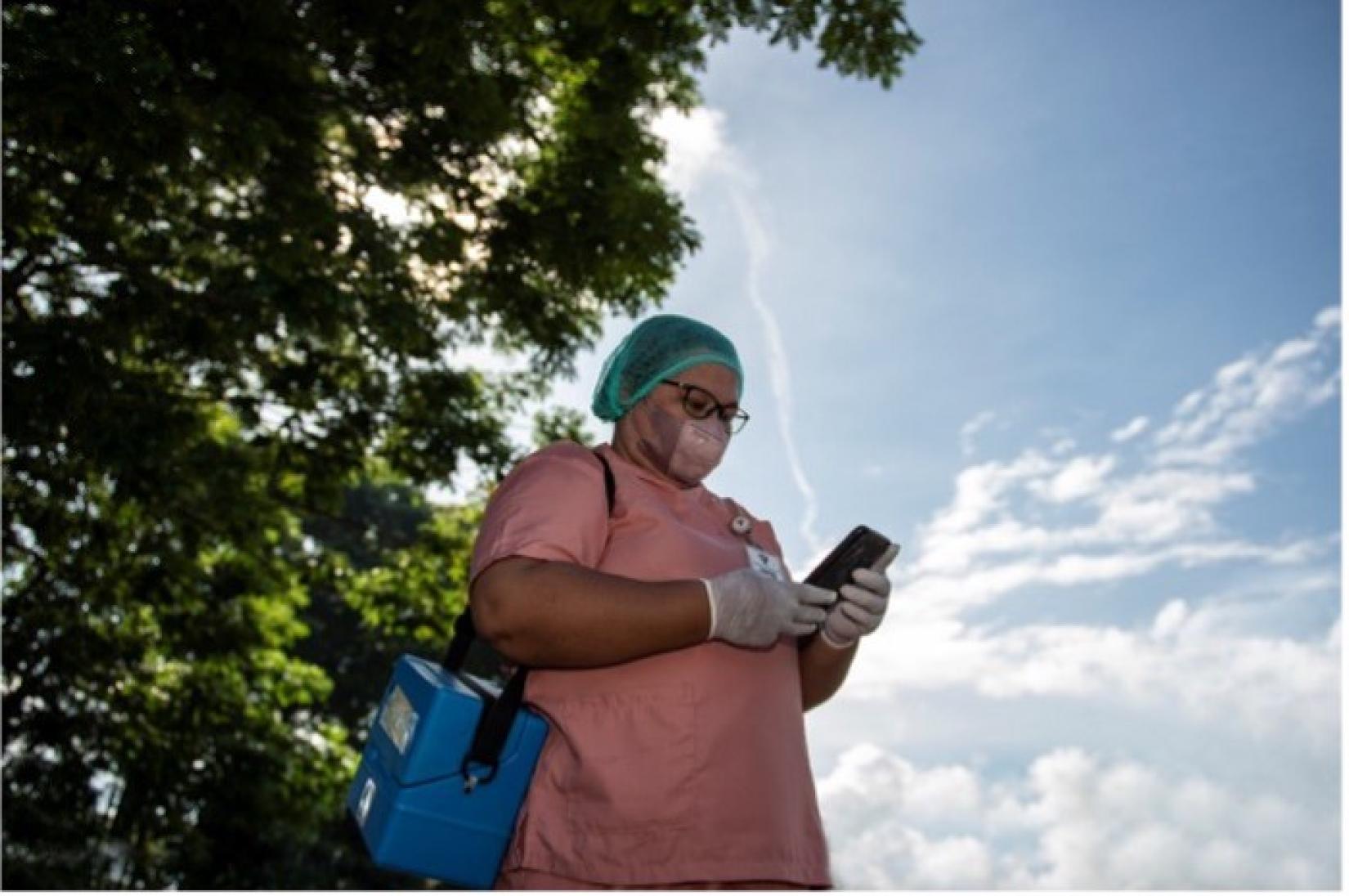
When it was first introduced in Ambon City, SMILE was only used by health workers in pharmaceutical warehouses, and those working on immunizations. It is now being used by health workers like Marlen, a midwife, who has been going door to door to speak to people about getting vaccinated. This effort and the provision of a vaccination center have contributed to Ambon’s 80 percent COVID-19 vaccination success rate.
“SMILE is a good partner for my fellow health workers and I during the pandemic. The data is presented in real-time and is easy to see,” Marlen, Midwife.
Vaccine Distribution Journey
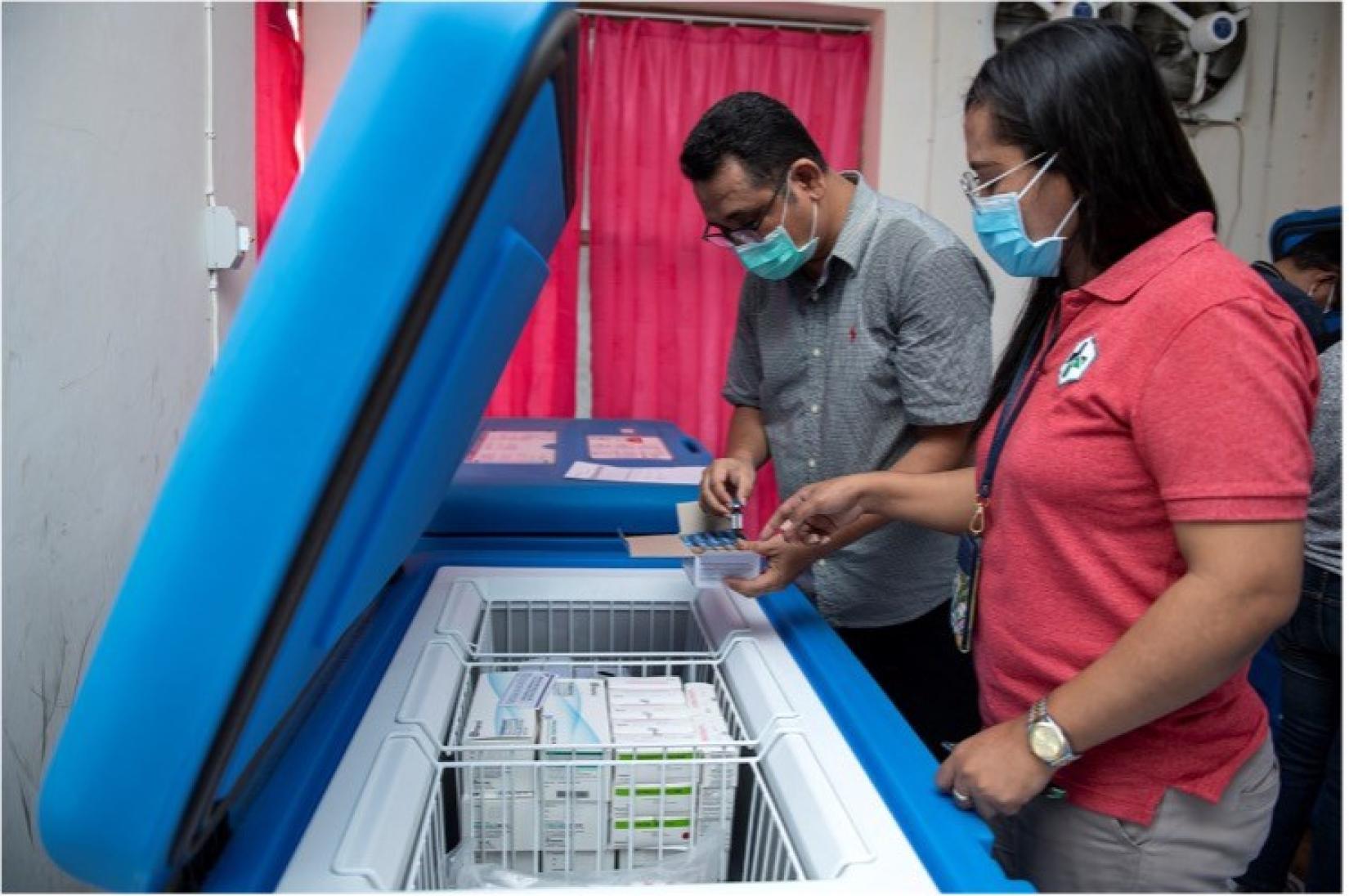
Ever since the pandemic hit, Maya and her fellow health workers, COVID-19 vaccination coordinators, have been hard at work making sure communities in Ambon get vaccinated. Their efforts have contributed to the city of Ambon reaching an 80 percent vaccination rate as of November 2021, including teenagers, adults and senior citizens.
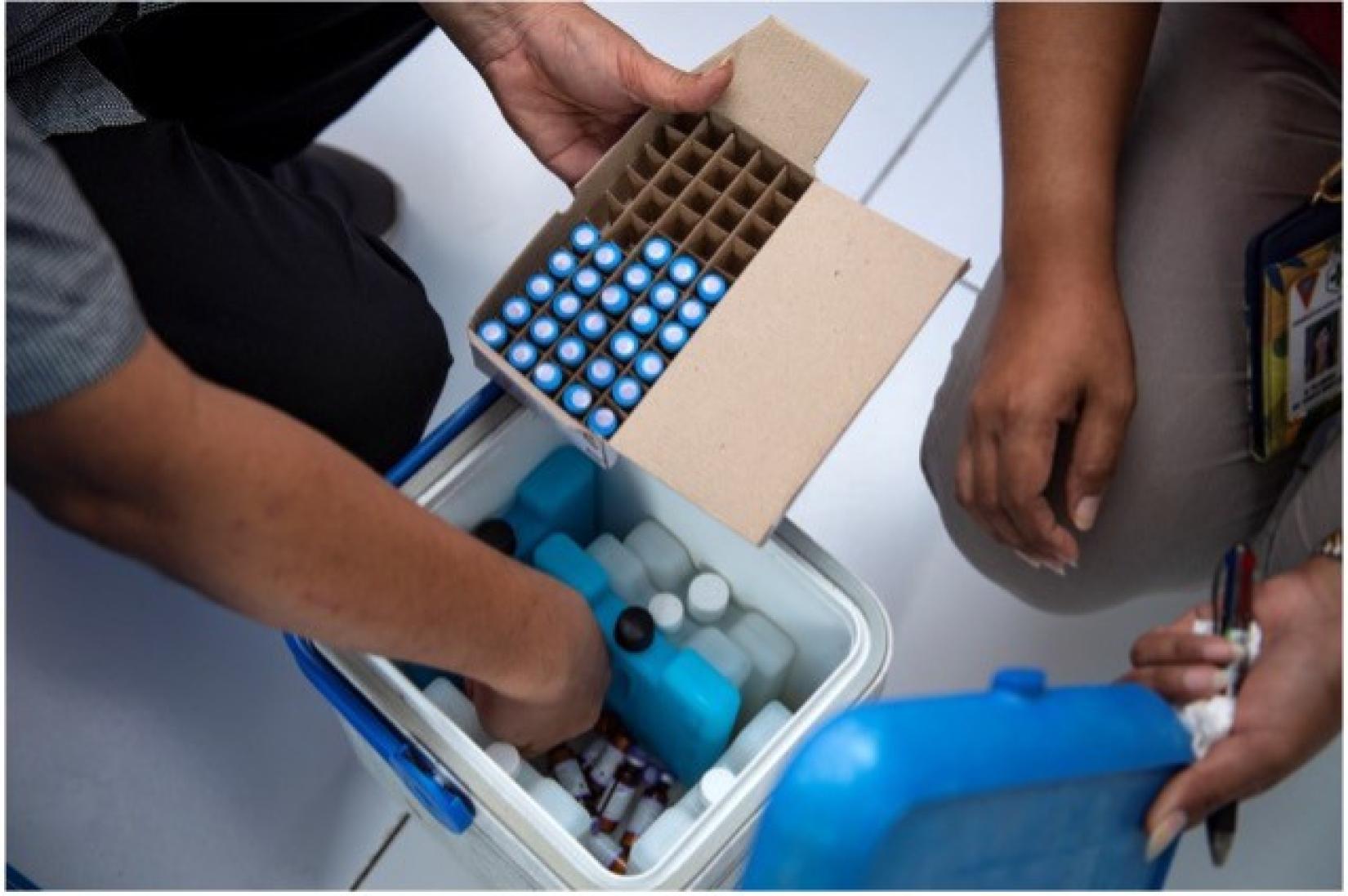
Maya is responsible for COVID-19 vaccination, and also ensures regular vaccines, including DPT-HB-Hib vaccines, are available. Teams from a community health center (puskesmas) distributes these vaccinations to communities in their jurisdiction.
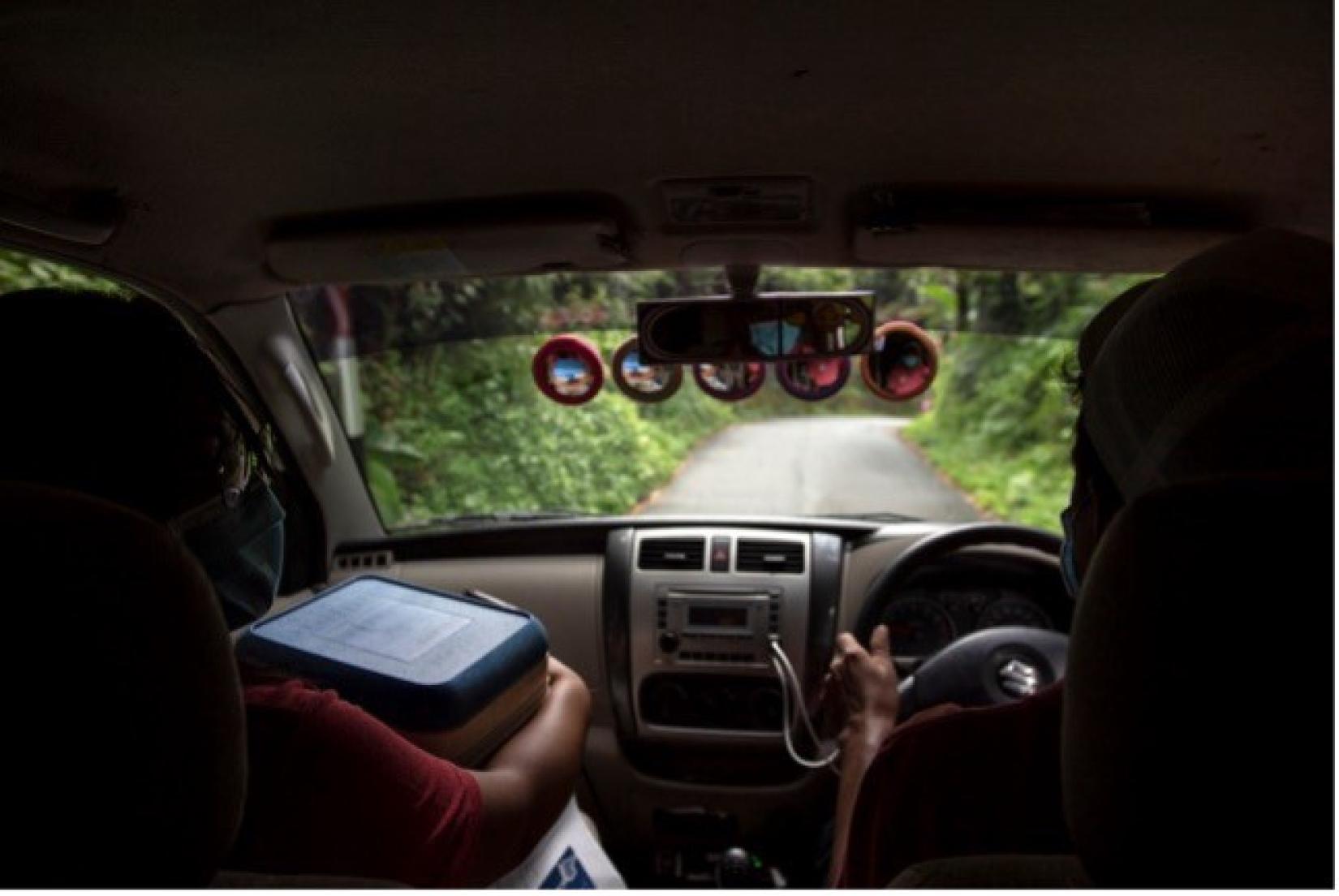
Maya and her colleague, Obi transport vaccines to the vaccination centers. The vaccines require special treatment, and must be maintained at temperatures between 2°C — 8°C, and away from direct heat, to ensure viability.
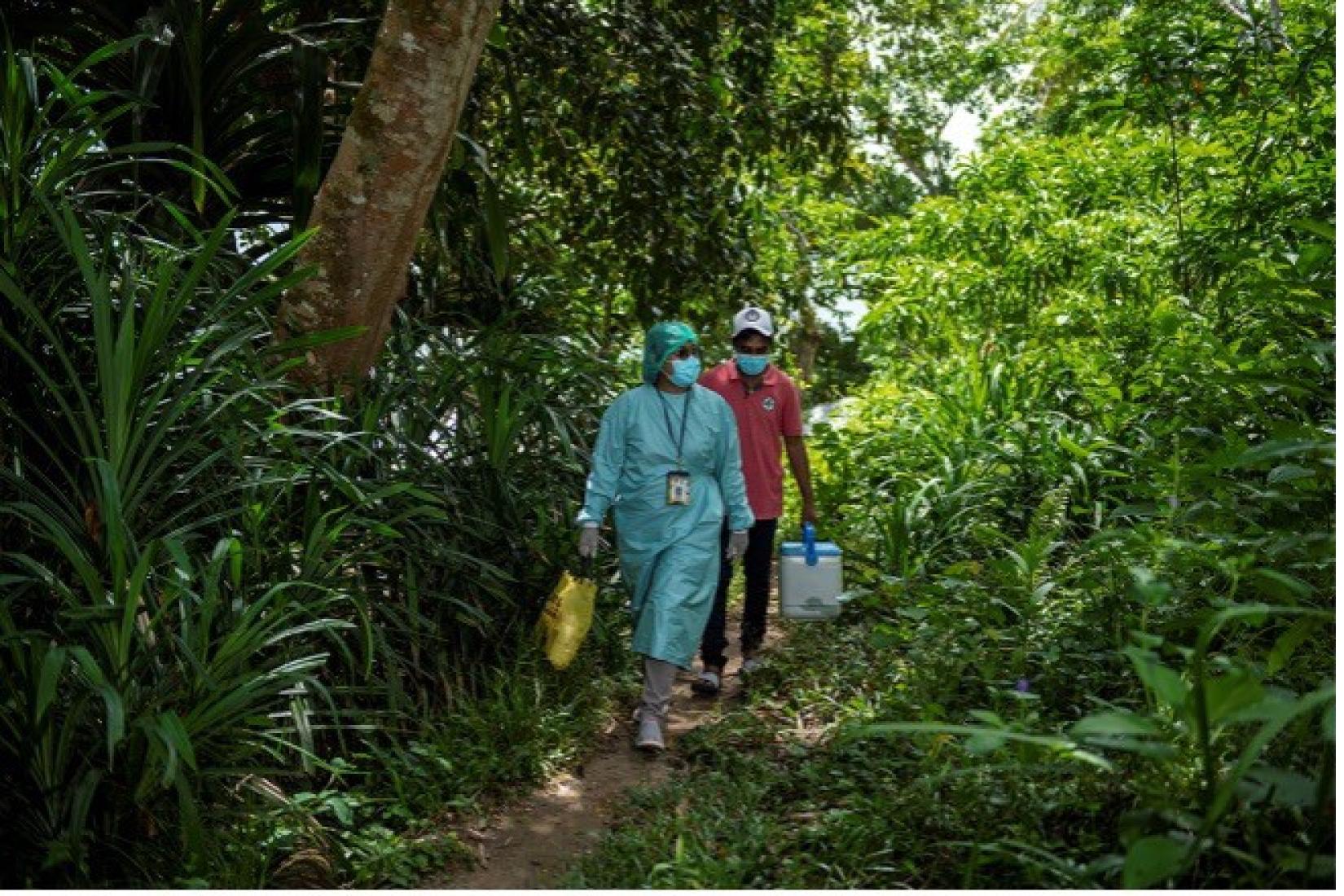
Maya and her colleague, Obi, carry vaccines in the coastal village of Hukurila. Not conducive for motorized vehicles, the area is only accessible by foot.
Internet signal is nonexistent in this area, so Maya uses a vaccination logbook to record the process. The book serves as data backup in locations without internet connections. She will transfer the data to the SMILE app later, creating a report of vaccine use at the health center at the end of the month.
“This journey is nothing compared to people’s long wait for the vaccine.” Magdalena Palomina, Health Worker.
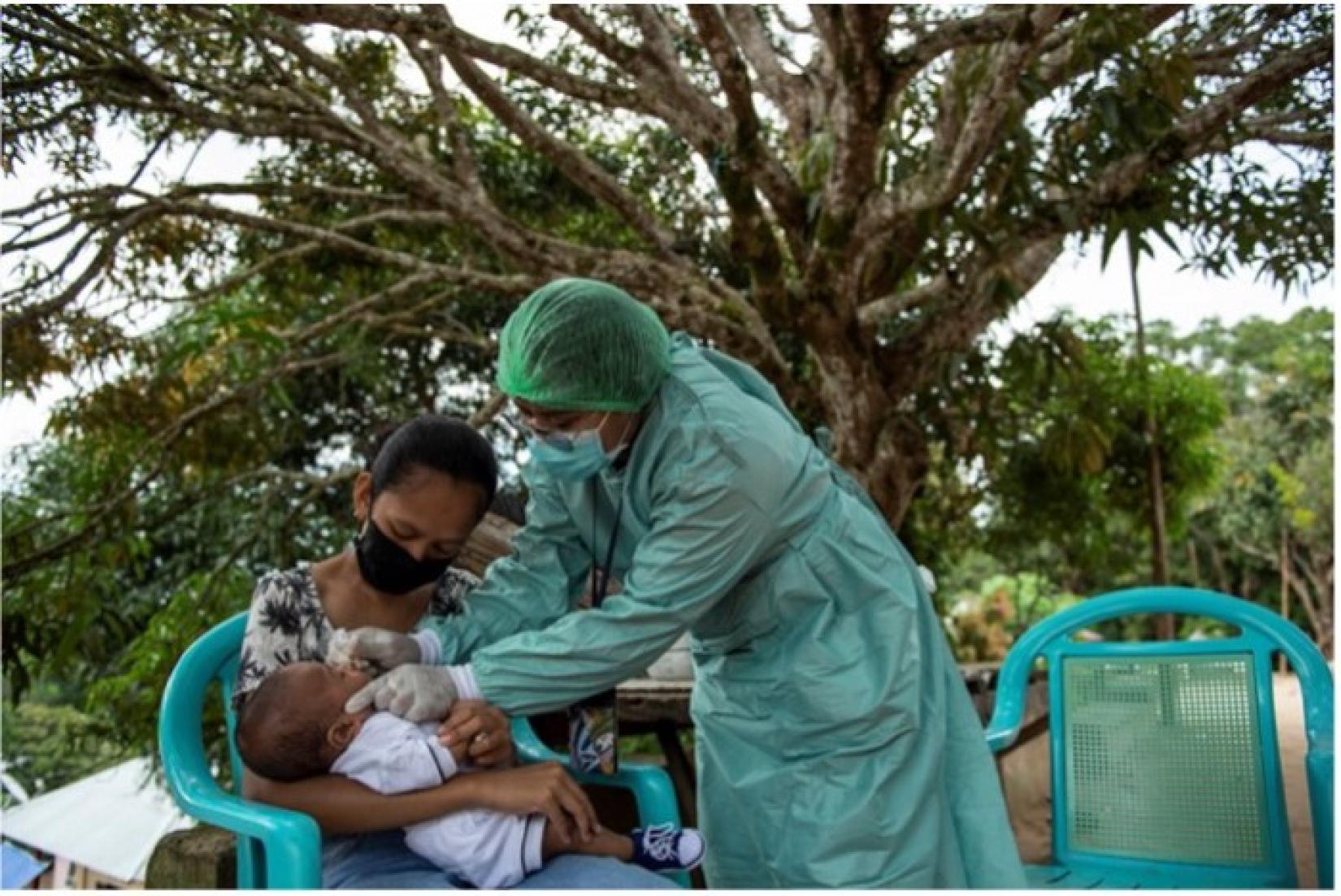
Health worker Maya covers a broad area of Maluku province. Indonesian regulations stipulate that babies are required to be immunized with five mandatory vaccines to help fight infections.
When children are vaccinated on time, they will help protect the entire communities. The government and all health workers work together to distribute vaccines across the country.
“For nearly two decades, I’ve been working to make sure that children are healthy and happy.” Magdalena Palomina, Health Worker.

The recapitulation of vaccination data is a critical part of vaccine distribution by community health centers or hospitals. When health worker Maya records data in the SMILE app, other details including transaction history, are automatically stored in the data of Ambon Health Office, as well as in the national database. Digitalization covers all information on vaccine stock, used vaccines, expired vaccines, and vaccination locations.
The data on vaccine distribution and supply is updated in real-time, which is important to support future plans and enable the next vaccination program to be conducted as scheduled. Because of SMILE, developed by the Indonesian Ministry of Health and UNDP with support from the Government of Japan, vaccine logistics data collection can be quicker and easier, as health workers can update the data accordingly. This innovative system has eased the work of health workers.
Written by


